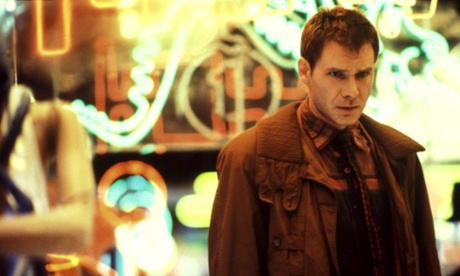A lot has happened between the events of 1982’s Blade Runner and Denis Villeneuve’s sequel. Replicants – the artificial humans introduced by Ridley Scott in his loose adaptation of Philip K Dick’s 1968 novel Do Androids Dream of Electric Sheep? – have been brutally retired, then allowed to rise once again from the ashes of their predecessors. Earth has become an even grimmer place to live than it was in Scott’s original movie. And those darned skin-jobs seem to have got even better at passing as human.
Villeneuve has commissioned several short films in the run-up to next week’s release of Blade Runner 2049, with the aim of enriching the world we’re about to be reintroduced to. Here’s what they told us about life in dystopian future Los Angeles.
Jared Leto’s Niander Wallace is the promethean heir to Eldon Tyrell
Luke (son of Ridley) Scott’s short film 2036: Nexus Dawn hinted that the leaders of a dying Earth gave permission to Wallace to begin rebuilding replicants after he proved to them that his new Nexus 9 models will commit suicide rather than harm their human masters. Jared Leto’s Wallace is an unfathomable creation: why would one of the richest men in even a poor world suffer cataract-induced blindness? Can he see after all, as the film’s final shot suggests? If so, what’s with all the creepy subterfuge?
It’s also hard to gauge why the powers that be, who don’t look that healthy themselves, are even listening to this madman. Villeneuve’s Blade Runner timeline, released at San Diego Comic-Con, partly explains that puzzle: Wallace was responsible, a decade before the events of the short, for saving the human race from likely starvation thanks to his experiments in genetically modified food, so likely has unimaginable influence over the movers and shakers of this dystopian hellhole. Hey, everyone’s gotta eat.
2049’s replicants are less recognisable
Dave Bautista’s Sapper Morton appears in Luke Scott’s second short, 2048: Nowhere to Run, as well as Blade Runner 2049 itself. And there’s a clear difference between the one-time wrestler’s performance and those of the actors playing replicants in the first movie, who often seemed deliberately supercharged with artificiality. Whereas Daryl Hannah’s Pris or Brion James’s Leon might easily have been identified as replicants without the need for the famous Voight-Kampf test, Morton appears able to pass easily for human. In fact, he shows a deep need to engage with his fellow sentient beings. The only sign that we are looking at a machine comes in the android’s brutal takedown of a gang of baddies.
Humanity has made this bed for itself
If the machines are rising up against us, anime short Black Out 2022 suggests we (as usual) probably deserve it. The film, from Cowboy Bebop’s Shinichiro Watanabe, reveals that the current growth in sexbots we are seeing in 2017 has led to a future in which sentient replicant prostitutes have become the norm. We’ve already seen something similar happening in HBO’s Westworld and AMC/Channel 4’s Humans, of course.
As a fan of the 2004 Battlestar Galactica remake, it’s interesting to hear the term “skinjob” being used here as a derogatory term for the replicants. Far from nicking it, screenwriter Hampton Fancher came up with the term for the 1982 original.
Androids are also being used to fight wars
Black Out 2022 imagines a future conflict in which both sides are replicant armies. The discovery that he is fighting his fellow machines appears to be the final straw for one android agitator, though one can imagine why it would make more sense to national governments than putting human lives at risk.
The machine sympathiser trope is not going away
There’s always a helpful human in these tales of malevolent artificial intelligence, a facilitator to the coming machine takeover. William Sanderson’s JF Sebastian in the original Blade Runner, lab technician Felix Lutz in Westworld, and of course poor Skynet techie Myles Dyson in Terminator 2: Judgment Day. Watanabe’s film reveals that an inside man helped the replicants cause an electromagnetic pulse (EMP) detonation that led to catastrophic events across the globe, later termed the Black Out, in 2022. Which side will Deckard himself be on in the new movie, having shown little sympathy to the Nexus 6s in the original Blade Runner, yet fallen hard for Sean Young’s only-slightly-more-advanced Rachel?











